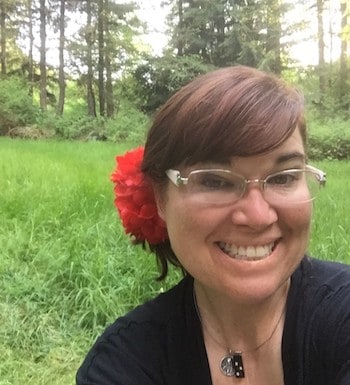Research can be a problematic area for practitioners of East Asian medicine. While many acupuncturists are keen to share research with patients that paints acupuncture in a positive light, especially for marketing purposes, there are not many of us that are generating that research. And there is the issue of double-blind studies, which are the gold standard in conventional medical research, but difficult to apply to East Asian medicine, as the practitioner is an integral part of the treatment.
This episode is a conversation with a full on Western style Ph.D. researcher who also is a dedicated practitioner of East Asian medicine. She has some unique views on how to apply research methods to our particular methods.
Students of doctorate programs will find this episode especially helpful, as it will give you tools and perspectives to engage researching your area of interest and contributing to our profession.
I always found that my clinic shift went better when I took time for self-care in the morning. A short walk, some stretches, yoga, or meditation was a great way for me to start my day centered and present. I learned a wonderful Kundalini kriya that helps bolster one’s boundaries and that was immensely helpful in ‘not taking on’ people’s energies or presentation when in the midst of being present with 12-16 patients on any given day. I invariably found that I was less available and less present with my patients when I was in a rush from dropping off kids at school, signing payroll checks, and then dashing into a treatment room with a patient. What a disaster!

Lisa Taylor-Swanson
I am a happy geek who has fallen in love with both clinical practice and with research. I started out as an undergrad investigating mother-infant communication. At about age 21, I discovered dynamic systems theory. That theory pretty much sums up how I see, think, and feel. It’s the idea that the whole is not merely the sum of its parts, and to best understand any phenomenon, we must study the whole. It was a natural fit for me to study traditional East Asian medicine (TEAM) given the holistic framework we use to diagnose and treat whole people.
I’ve come to realize that in the nearly 20 years that I’ve seen patients that TEAM clinical practice is profound, transformational and revolutionary.
In a conversation a few years ago with Michael Max, I found myself gaining greater clarity and vocabulary about my clinical practice: for me, clinic is sacred. Not in a churchy or religious sense. But rather sacred given that I have the opportunity to fully be present with another human being as they walk along their journey of life.
It is sacred in the sense of all the amazing changes I’ve witnessed in my patients: both expected (we’re treating pain and it is decreased) and unexpected (less pain, and et voila!, they quit their miserable job and follow their dreams…). Along the way I found after about a decade of practice that while I deeply appreciated what happened in clinic, the sacred space and delightful changes I was able to help my patients realize, that I needed more fun in my career: for me, research is fun.
Research is creative, generative, and dynamic. I am interested in discovering how we can more fully experience our embodied self-awareness, and live less in our heads.
In research lingo, we’ve discovered that symptoms are described as less bothersome, interfering, or severe, when we’re more present with ourselves, with greater embodiment. This translates to traditional East Asian medicine because I think that while people lay on the table, needles in place, they have the 20-30 minute opportunity to drop into their present lived experience, and to get out of their heads, if they choose to take that invitation to settle.
We are inherently social beings and that social context, re-created in healthy and nurturing clinical contexts, supports embodiment and being present in one’s lived experience. My research is investigating these topics, and a few others. I’ve been so incredibly fortunate to complete at PhD at the University of Washington and most recently join the faculty at the University of Utah. I’m one of a couple of handfuls of acupuncturist-researchers.
For those who find research absolutely boring, or worse, pointless…please listen to this conversation. It’s lively and not, perhaps, as dry as you’d anticipate.
You can connect with Lisa through this webpage at the University of Utah.
Visit Lisa’s personal website.